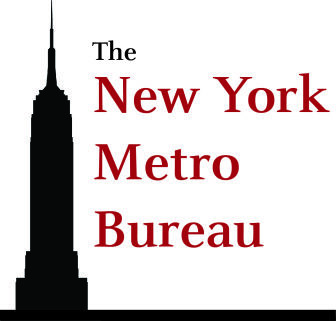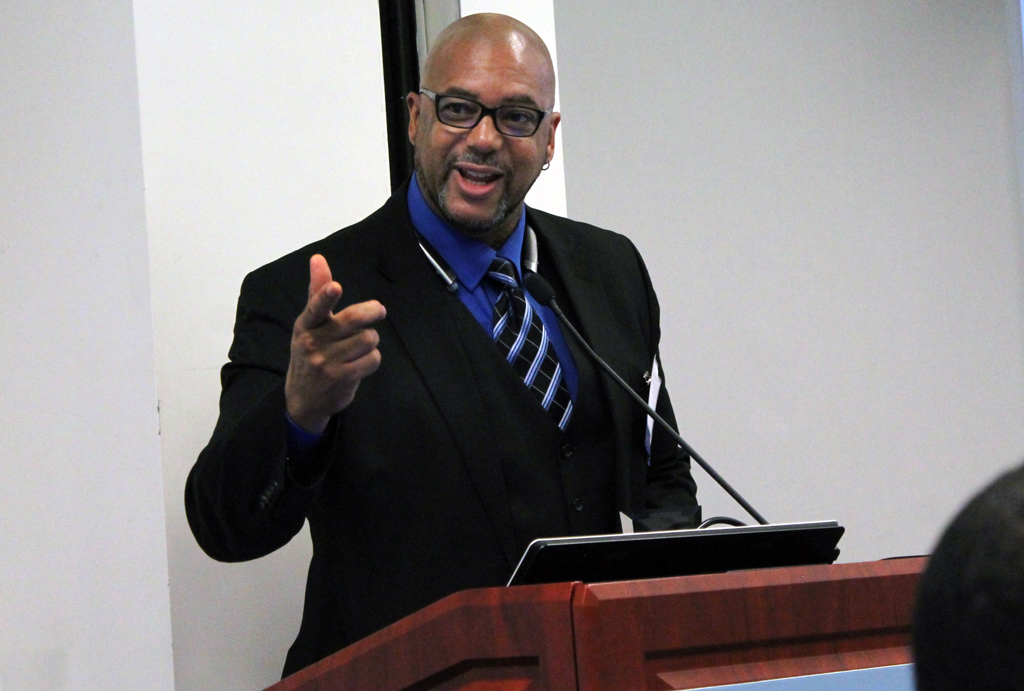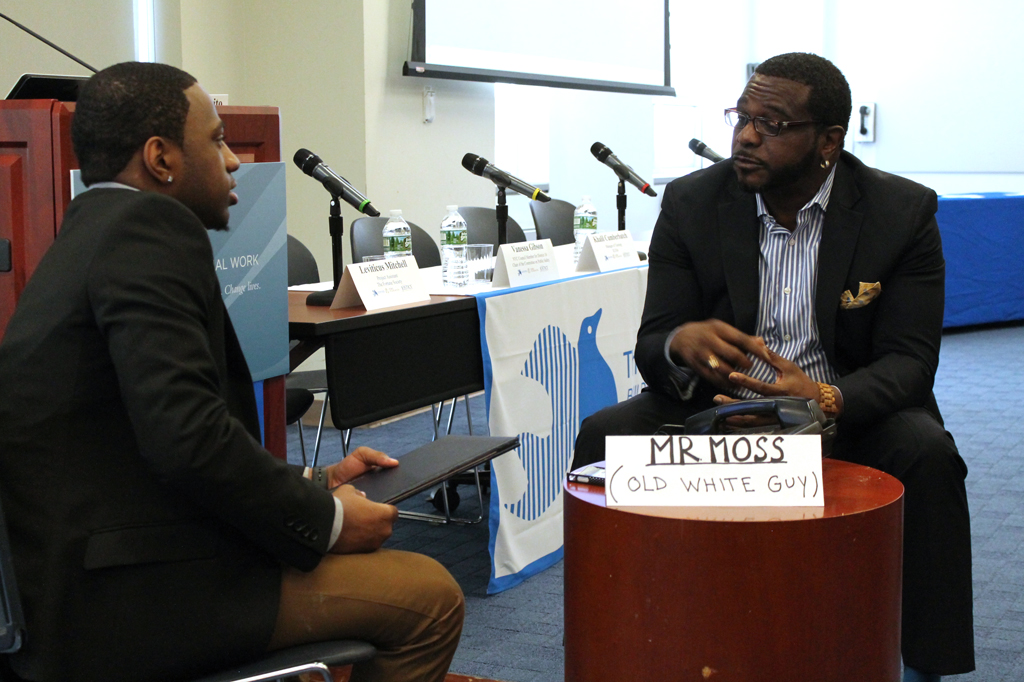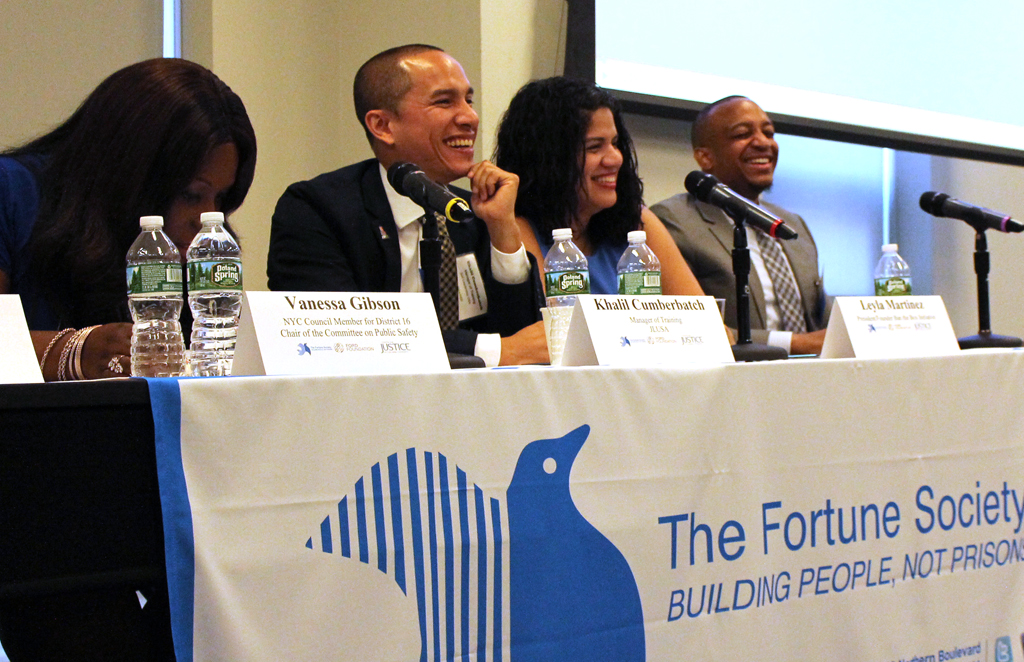NEW YORK — Leyla Martinez didn’t expect to be accepted to Columbia University. She applied to demonstrate a lesson — not to limit himself — to her then-16-year-old son. She was 40, a single mother and formerly incarcerated, not the typical Columbia applicant.
“So, I started the application process and when I got to page five, here was the question — it was devastating to me,” Martinez said. She was asked if she had a previous criminal record.
 “How did that have anything to do with my ability to perform well in this school?” Martinez asked. “Why did I have to bring that up when I was so much more than just that — that does not define who I am.”
“How did that have anything to do with my ability to perform well in this school?” Martinez asked. “Why did I have to bring that up when I was so much more than just that — that does not define who I am.”
She answered honestly and then something she never expected happened — she got in.
Now she works to ban the question and to encourage other formerly incarcerated people — especially youth — to never give up.
Martinez was one of several panelists at Justice 4 All, a summit convened by young leaders in New York City to address issues of inequality within the justice system. Held Tuesday at the Columbia University School of Social Work, it brought together more than 100 youth, youth advocates, community members and funders. Sponsored by the Ford Foundation, the Center for Justice at Columbia University and the Fortune Society, the summit covered steps young community members can take to help build safer communities, improve police accountability and increase transparency within the justice system.

Stanley Richards, executive vice president at the Fortune Society, served as master of ceremonies at the #Justice4All Summit, held Aug. 1, 2017, at Columbia University in New York.
Martinez, now a junior majoring in human rights, has petitioned Columbia’s administration to stop asking about prior criminal records during the application process. She hopes her story will inspire young people to never give up.
“My whole thing is so the kids can know whatever mistake they made, it was not the end, it is not who they are,” she said.
Khalil Cumberbatch, 35, also a panelist, agrees. Incarcerated in his early 20s, he served 6½ years in the New York state prison system. He was released in 2010, found a job, started a family and was enrolled in college when he learned he was being targeted for deportation.
Like Martinez, Cumberbatch was persistent in his commitment to succeed. He also credits help from the Fortune Society and others with helping him survive both the criminal justice and the immigration system.
“I am not exceptional, the outcomes that I received are exceptional, but the reality is I am the outcome of exceptional opportunities,” he said.
“We should be giving those same opportunities ... to people who have similar stories to mine,” he added.
Cumberbatch now works with JustLeadershipUSA, a nonprofit dedicated to halving the U.S. correctional population by 2030.
“It should be easier for sure to give someone a job, but also it should be easier to give someone access to education than it should be to put them in a jail cell,” he said.
To illustrate systemic racism, young people from the Fortune Society, directed by performers from the Theatre of the Oppressed NYC, performed “Profiled & Exiled.” In the performance, a young man with minor convictions on his record experiences discriminatory hiring practices, racial profiling by police and an overwhelmed and inefficient justice system.

A scene from “Profiled & Exiled” depicts discrimination in the workplace. The performance was part of the #Justice4All Summit, held Aug. 1, 2017, at Columbia University in New York.
Audience members were then invited re-enact scenes showing how young people can empower themselves by knowing their rights.
“In the end, what’s really needed is youth empowerment,” said Cumberbatch, adding that empowerment includes accepting that people make mistakes.
Stanley Richards, executive vice president for the Fortune Society, said it is that acceptance that gives those in attendance the power to change lives.
“Our job is to see the beauty in people before they see it in themselves,” said Richards, who served as the master of ceremonies for the summit.
Martinez said she wants others to see that beauty as well. Deciding to accept Columbia’s offer of admission was the best decision of her life, she said, in part because she can educate the academic community about the challenges facing those with prior involvement in the justice system.
“I have a lot of people who never even considered formerly incarcerated persons who are now rooting for me,” she said, adding that she hopes that translates into more opportunities for those who are formerly incarcerated.
“These are future leaders of corporations and the country,” she said, referring to Columbia students. “They now have a different view of what formerly incarcerated is and when they’re about to hire someone, they’ll think ‘Oh, wait — this is what Leyla was talking about.’”
Hello. We have a small favor to ask. Advertising revenues across the media are falling fast. You can see why we need to ask for your help. Our independent journalism on the juvenile justice system takes a lot of time, money and hard work to produce. But we believe it’s crucial — and we think you agree.
If everyone who reads our reporting helps to pay for it, our future would be much more secure. Every bit helps.
Thanks for listening.
